Queering Farming: How LGBTQIA+ Farmers are Reimagining Agriculture
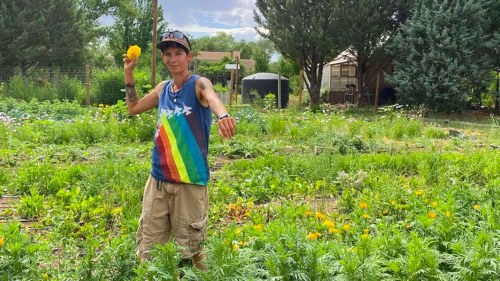
Queer farmers are challenging discriminatory legacies in agriculture, and envisioning an agricultural system that uplifts and celebrates LBGTQIA+ people.
At Ashokra Farm in New Mexico, Anita Adalja tends to lush fields of diversified vegetables. Adalja and their team labor day in and day out to produce a bountiful harvest for their community, but Ashokra Farm does more than harvest and sell vegetables; it is an LGBTQIA+ and BIPOC-owned farm that prioritizes creating a safe space for queer people and people of color in the agriculture industry.
As a person who is queer and Indian, Adalja felt like she did not fit the typical white, cisgender, and heterosexual farmer identity. But instead of trying to force themselves to conform to the agriculture system’s expectations, Adalja created a community of queer and BIPOC farmers through Ashokra Farm and in founding Not Our Farm, a community of farmers who do not own their farm business. “It can be such isolating work, since this system was never built to serve us...but I wouldn’t change my identities for anything in the world,” Adalja shared. He’s not the only one; queer farmers across the US are subverting stereotypical perceptions of farming by embracing their identities. Through questioning what it means to be a farmer and what farming practices can look like, queer farmers are challenging cisheteropatriarchal legacies in agriculture and envisioning a food and agriculture system that uplifts and celebrates LBGTQIA+ people.
Discriminatory Legacies in American Agriculture
American farmers are frequently portrayed as white, cisgender, heterosexual men, largely because these identities are disproportionately represented within the farming community. According to the 2017 US Department of Agriculture (USDA) farming census, 73.6 percent of farmers are men and 95 percent of them are white. Although the census does not account for sexuality or gender identity, independent reports estimate queer people represent only five percent of rural Americans and a comparable percentage of farmers. This reinforces a cisheteropatriarchy—a system of power that centers cisgender, heterosexual men and positions them as superior and normative, reinforcing binary notions of gender and sexuality. As a result, queer farmers are pushed to the wayside, their voices shushed and rights left unprotected.
Without adequate visibility, queer farmers are unable to access the same resources as their cisgender and heterosexual counterparts. They lack federal and state nondiscrimination protections, leaving queer farmers especially vulnerable to discrimination in employment, housing, healthcare, and more. For queer BIPOC farmers, the consequences are even more severe.
In addition to discrimination in agriculture, recent legislative attempts to restrict LGBTQIA+ rights more broadly are heightening concerns for queer people’s futures. For instance, lawmakers are denying trans people access to healthcare, which will make it even more difficult to provide equitable access to healthcare for rural communities that already face disproportionate challenges in accessing it.
Queer Visibility in Farming Challenges American Norms
Despite ongoing discrimination that queer farmers face within and beyond agriculture, they refuse to be overlooked, choosing to create intentionally queer spaces in agriculture that protect and celebrate their identities. Ang Roell, founder of They Keep Bees; Frankie Rafferty, orchard crew member of Finnriver Farm and Cidery; and Hannah Breckbill, founder of Humble Hands Harvest are embracing their identities as queer farmers, much like Adalja.
Roell is one of only a handful of openly queer beekeepers in the US, but chooses to use their identity as a source of inspiration rather than a setback. “Getting into [farming], I had to swallow a lot of misgendering and misunderstandings about my identity...now that I run my own business, I am able to make choices about how I want to run an agricultural business. That is empowering and healing,” Roell explained. They Keep Bees is an LGBTQIA+ led apiary, raising resilient and adaptive bees with a culture of collaboration and celebration of queerness in apiculture.
As a member of Finnriver Farm and Cidery’s orchard crew, Rafferty finds a similar sense of queer liberation and joy that challenges binary understandings of farming. “My queer body is doing the same work that an old, white man has been doing for a long time, and I’m doing it in a way that’s authentic to me,” said Rafferty. “It’s a very healing and beautiful experience.”
Humble Hands Harvest—the host of the Queer Farmer Convergence—also builds community among queer farmers, with a focus on reflecting on and interrupting racist and capitalist legacies in US agriculture. “How do we deal with the fact that landownership is...a product of colonization and genocide and disenfranchisement?" asked Breckbill. “We need to look through the intersection of queer farmers...I can see this making the world a better place.”
A Better Vision for American Agriculture
Queer farmers diverge from and challenge the American agricultural cisheteropatriarchy in their approach to farming—they are queering farming. Three primary differences emerge: 1) changing their relationship to the land, 2) being in community, and 3) challenging exploitative practices.
Many queer farmers prioritize relationship with the land rather than benefit from the land, challenging extractive and exploitative agricultural practices. “This is a place of joy that breaks the normative culture and does things that are important for the longevity of the planet and our community,” said Rafferty. “We are becoming more acquainted with the land as an organism, an ecosystem.” Adalja echoes Rafferty’s perspective, sharing that farming is not about “how much produce we are pumping out of the land,” but rather “taking care of the land” and committing to the regeneration of the planet.
This is a place of joy that breaks the normative culture and does things that are important for the longevity of the planet and our community.
Queering farming also focuses on being in community with one another, fostering lasting relationships with community members and finding support among each other. “We are supporting each other in moving forward...we want to live out loud in the fullness of ourselves,” Roell said, emphasizing the importance of creating safe spaces for mutual growth and enrichment. Being in community with one another “feeds the community,” according to Breckbill, and gives communities decision-making power over what happens to the land surrounding them.
Challenging exploitative practices is another common approach by queer farmers. Recognizing that the history of agriculture is “rooted in enslavement practices, in total exploitation of people,” Adalja emphasizes the importance of reimagining what farming can look like separate from exploitation, such as prioritizing cooperative business models and enforcing equitable pay standards. Rafferty adds that exploitative practices “cut off access to so many resources, which disproportionately affects the most marginalized people in the world,” highlighting the necessity of transforming the current system to uproot exploitative practices and further advance values of equity in agriculture.
Queer Farming Is a Place of Belonging
Queer farmers are redefining what farming can look like, creating a sense of kinship with each other and the Earth. They are rejecting the cisheteropatriarchal legacy of American agriculture by embracing their identities, cherishing each other as they are and redefining what farming is and how it’s done. Queer farming is a place of belonging for all that enhances agricultural practices and prioritizes the wellbeing of the planet. “I’m so inspired by the queer farmers around me who are redefining what farming can look like,” said Adalja. “I have found the place where I belong.”


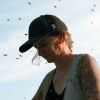





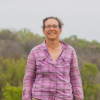

Related Content
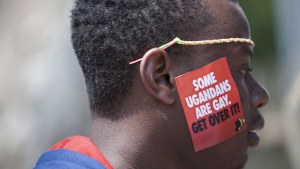 Inclusion and Equity
Inclusion and Equity
During Pride month, we delve into the historical context and societal factors that have shaped Uganda's stance on LGBTQ rights.
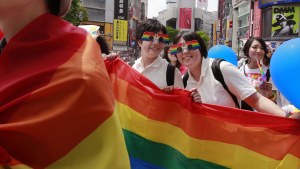 Inclusion and Equity
Inclusion and Equity
Polling shows the Japanese public supports recognizing same-sex marriages, even as officials stall on legislation to advance equality.
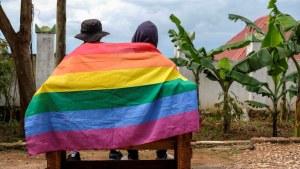 US Foreign Policy
US Foreign Policy
American religious groups have spent millions exporting homophobia to the East African nation.
